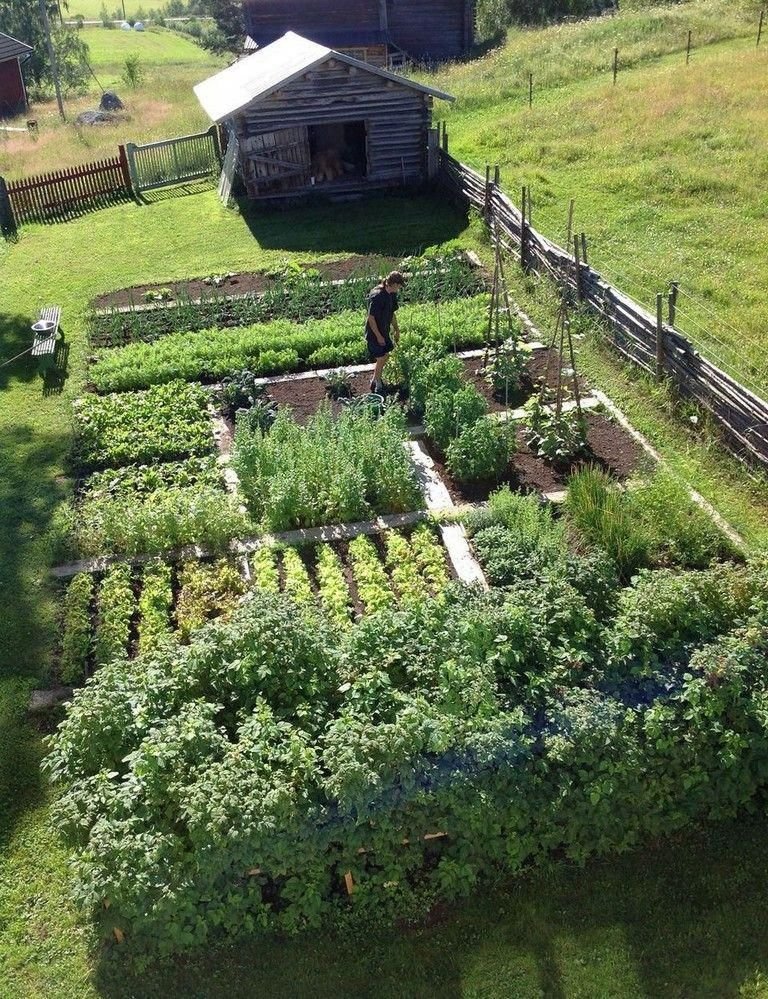Introduction
In recent years, a growing movement towards self-sufficiency, sustainability, and a desire for fresher, healthier food has sparked a resurgence in backyard farming. This age-old practice of cultivating crops and raising animals in one’s own backyard has evolved from a quaint hobby into a vital component of modern urban and suburban life. In this article, we will explore the benefits of backyard farming and offer practical tips on how to get started.
The Rise of Backyard Farming
Backyard farming, also known as urban or home gardening, has gained popularity for several compelling reasons:
- Food Security: As concerns about food supply chains and global instability grow, more people are turning to backyard farming as a way to ensure a steady source of fresh produce and protein.
- Health and Nutrition: Homegrown fruits and vegetables are not only tastier but also more nutritious, as they are free from harmful pesticides and preservatives.
- Sustainability: Backyard farming reduces the carbon footprint associated with transporting food over long distances, contributing to a greener, more sustainable lifestyle.
- Cost Savings: Growing your own food can significantly reduce grocery bills, making it an attractive option for budget-conscious individuals and families.
Getting Started with Backyard Farming
Here are some steps to help you embark on your backyard farming journey:
- Assess Your Space: Evaluate the available space in your backyard. Even a small patio, balcony, or windowsill can accommodate containers for herbs or small vegetables. Larger yards can support a wider variety of crops and even small livestock.
- Plan Your Garden: Determine what you want to grow and make a planting plan. Consider the climate and soil conditions in your area, and choose plants that are suitable for your space.
- Invest in Basic Equipment: Depending on your chosen crops, you may need tools such as shovels, rakes, pots, and watering cans. Additionally, fencing may be required if you plan to keep animals.
- Soil Preparation: Ensure your soil is fertile and well-draining. Compost and organic matter can enhance soil quality. Consider getting a soil test to determine its composition and needs.
- Choose Your Crops: Start with easy-to-grow vegetables like tomatoes, peppers, and herbs. As you gain experience, you can expand your garden to include more diverse crops like root vegetables and fruits.
- Water and Care: Regular watering and maintenance are essential. Learn about the specific needs of your plants and follow best practices for pest control and disease prevention.
Backyard Farming Beyond Vegetables
Backyard farming isn’t limited to just fruits and vegetables; it can also include small-scale animal husbandry. Here are some options to consider:
- Chickens: Keeping a small flock of chickens can provide a steady supply of fresh eggs. Chickens are relatively low-maintenance and can be kept in a coop or even free-range in some areas.
- Bees: Beekeeping not only produces honey but also benefits your garden by aiding in pollination. Be sure to research local regulations and safety precautions before starting a bee colony.
- Rabbits: Rabbits are a great source of lean protein and can be raised in a hutch or enclosure. They reproduce quickly, providing a sustainable source of meat.
Benefits of Backyard Farming
Engaging in backyard farming offers numerous advantages:
- Fresher, Healthier Food: Homegrown produce is free from chemicals, additives, and preservatives, leading to healthier eating habits.
- Environmental Impact: By reducing the demand for commercially grown produce, backyard farming helps decrease the environmental impact of large-scale agriculture.
- Sense of Accomplishment: Growing your own food is immensely satisfying and can boost self-esteem and mental well-being.
- Community Building: Backyard farming can foster a sense of community as neighbors share surplus produce and gardening tips.
Conclusion
Backyard farming is a rewarding endeavor that allows individuals and families to take control of their food sources while contributing to a more sustainable and healthy way of life. Whether you have a small balcony or a spacious backyard, there is a way to start your own backyard farm and enjoy the numerous benefits it offers.
So, roll up your sleeves, grab some seeds, and let the green revolution begin in your own backyard!

